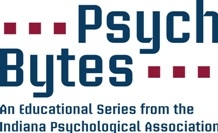
| Children with unidentified hearing loss can be confused as having autism spectrum disorder (ASD) because these disorders share some similar symptoms. Common features of a child with ASD include difficulty communicating with others, trouble forming social relationships, and delayed speech and language development. These features are also common among children with unidentified hearing loss. Early identification of hearing loss is crucial to determine a correct diagnosis. However, it is important to note that hearing loss and autism can coexist. The earlier that therapy services are implemented, the greater the chance the child has to develop critical language skills. It is reasonable to suspect that children with hearing loss would have difficulty communicating with others and forming social relationships as they may have missed out on the critical period of language development. It is typically difficult to focus or show active engagement when one is having trouble hearing. Children with conductive hearing loss caused by eustachian tube dysfunction or chronic otitis media may show aggressive behavior, as these middle ear problems can be painful. Sometimes the behaviors of children with autism can mask the symptoms of an ear infection. Many parents fail to suspect hearing loss as a possible explanation for these behaviors simply because the child passed their newborn hearing screening. Middle ear infections are common in growing children because their eustachian tube is not yet developed at the angle for optimum drainage. These infections are usually easy to treat, but if they return regularly or cause noticeable behavior change or speech delay, the child may be a candidate for ear tubes. It is important to consider that hearing loss can be induced at any time and should be checked regularly. Reference: Rafal, Z. (2013). Conductive hearing loss in children with autism. European Journal of Pediatrics, 172 (8), 1007-1010. doi:10.1007/s00431-013- The following resources provide helpful information regarding hearing loss for parents and clinicians: http://kidshealth.org/en/parents/hear.html# http://www.asha.org/public/hearing/Causes-of-Hearing-Loss-in-Children/ Contributors: Ciara Wappes Audiology Student Ball State University Kimberly Zoder-Martell, Ph.D., HSPP, BCBA-D Assistant Professor of Applied Behavior Analysis Ball State University |